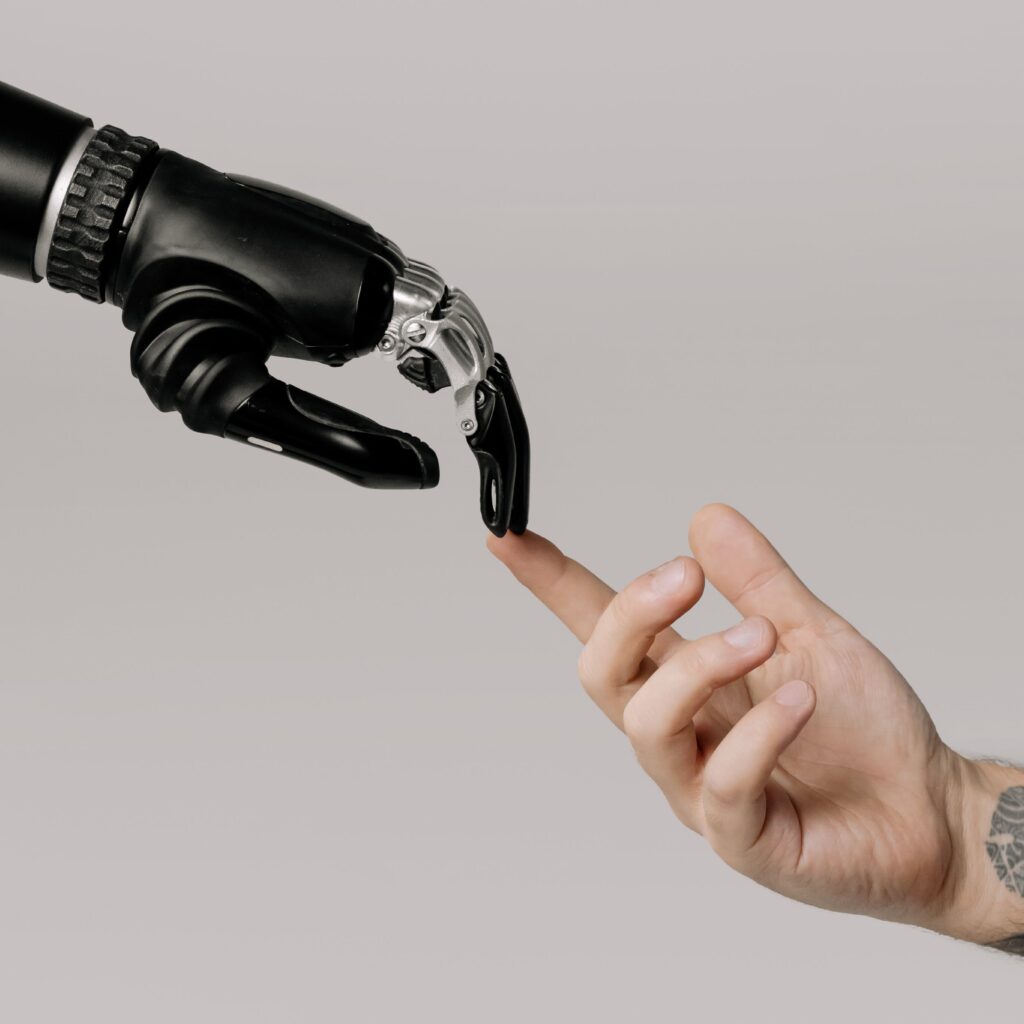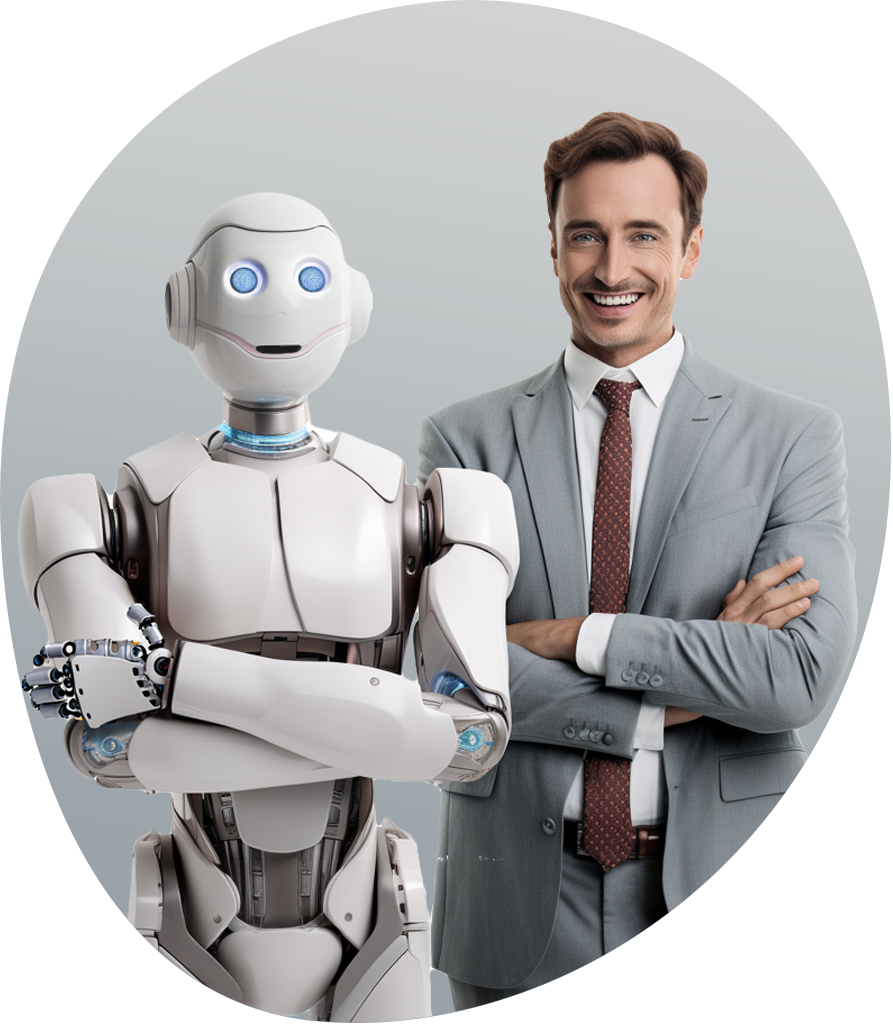In an era where artificial intelligence (AI) is no longer just a futuristic concept but a practical tool, the customer service sector stands at the forefront of significant transformation.
With AI technologies like chatbots and virtual assistants becoming increasingly sophisticated, there’s a growing conversation around their impact on employment and customer experience. This article delves into how AI is reshaping customer service, highlighting the roles of AI Agents and Chat Bots in this evolution.
AI in Customer Service – Beyond the Hype
The transformative power of AI in customer service is becoming increasingly evident. As AI First’s AI Account Manager and DigiClone services demonstrate, the integration of AI in customer interactions offers more than just efficiency; it brings a personalized touch that was previously unachievable.
These technologies excel in understanding and responding to customer queries with a precision that feels human-like, setting a new standard in customer service.
Some of the benefits of AI in Customer Service:
- Personalized Interactions: AI can easily tailor conversations to individual customer preferences, making each interaction unique.
- Efficiency: AI tools can handle numerous queries simultaneously, reducing wait times and increasing overall productivity.
- 24/7 Availability: Unlike human agents, AI systems can operate around the clock, offering constant support to customers in different time zones.
Real-world applications, especially in sectors like e-commerce, show that AI-driven customer service not only improves efficiency but also significantly enhances customer satisfaction.
Human-AI Collaboration – A Synergistic Approach
The narrative around AI in customer service is not about replacing human workers but about creating a powerful synergy. AI handles routine tasks efficiently, while human agents focus on complex, nuanced interactions that require empathy and deeper understanding. This partnership is exemplified in our own approach at AI First, where our tools are always designed to assist rather than replace human agents.
Key to this collaboration is training and adaptation. As AI takes on more frontline tasks, customer service professionals are being retrained to manage these AI systems, interpret their outputs, and step in when a human touch is needed. This shift is creating a dynamic, responsive customer service environment where technology and human expertise work in tandem.
Take the bulk of client communications in media or creative agency account management: during mid and late project phases it’s common to see general questions come through, with clients often asking about the current state of a project phase or general support following their onboarding process.
Most of the time answering these questions can be fully automated as, nowadays, all this data is already present in modern Project Management software (with API access) or digital company files. Rather than taking time from the human Account Manager to pass the question onto the Project Manager, who would then simply either check the system themselves, or check with developers, and then passing all of this information back, an AI Account Manager can offer a reply almost instantly and save the team from a potential distraction.

Innovation and Efficiency
The role of AI in revolutionizing customer service is immense, particularly in enhancing innovation and efficiency. Technologies, such as AI Account Manager and DigiClone, are at the forefront of this transformation, offering businesses not just enhanced operational efficiency but also a complete redefinition of the customer experience. The multifaceted impact of AI in customer service includes:
- Reduced Response Times: AI systems, with their ability to process and respond to queries almost instantaneously, dramatically cut down customer wait times. This immediate response capability is crucial in today’s fast-paced environment where customer expectations for quick service are higher than ever.
- Consistent Quality: Unlike human agents, AI maintains a consistent level of service quality. It is unaffected by variables like fatigue, mood, or personal bias. This consistency ensures that every customer interaction meets a high standard, contributing to more reliable and trustworthy customer service.
- Scalability: One of AI’s most significant advantages is its scalability. AI systems can handle an increasing volume of interactions effortlessly, making them ideal for businesses in growth phases or experiencing seasonal spikes. This scalability ensures that customer service quality does not diminish during peak times.
- Personalized Experiences: Beyond handling inquiries, AI systems can analyze customer data to provide personalized recommendations and solutions. This level of personalization enhances customer satisfaction and fosters loyalty.
- Cost Efficiency: Implementing AI in customer service can lead to substantial cost savings for businesses. By automating routine tasks, companies can reduce the need for a large customer service workforce, leading to lower operational costs without compromising service quality.
- Continuous Learning and Improvement: AI systems are designed to learn from interactions, continuously improving their responses and efficiency. This learning capability means that the quality of customer service provided by AI is always evolving and adapting to better meet customer needs.
This new era of customer engagement, powered by AI, is setting a benchmark in service quality. AI First’s technologies are not just part of this change; they are leading it, demonstrating the enormous potential of AI to transform customer service landscapes across industries.
The Future of Work – AI’s Role in Job Creation and Transformation
The integration of AI in customer service is often viewed through the lens of job displacement. However, a more accurate perspective is job transformation. AI is not eliminating jobs but rather changing their nature and creating new opportunities. AI First is playing a critical role in this transition by providing AI solutions and helping businesses and employees adapt to these changes.
- AI Management and Oversight: New roles are emerging that focus on managing and optimizing AI systems.
- Enhanced Interpersonal Skills: As AI handles routine tasks, the value of human skills like empathy, creativity, and problem-solving is amplified.
- Data Analysis and Strategy: There’s a growing demand for professionals who can analyse AI-generated data and use it to inform business strategies.
In this new era, AI is not a threat to employment but a catalyst for job evolution and the creation of new career paths.
The narrative of AI in customer service is one of enhancement, collaboration, and opportunity. The ‘hype’ is real enough that we have fully embraced the revolution, so, for what it’s worth, you can take our word for it.
Our own customer focused services are at the forefront of this evolution, demonstrating how AI can not only improve efficiency and innovation in customer service but also foster a more responsive, human-centric approach. The future of customer service, influenced by AI, promises an optimal blend of technology and human interaction, delivering exceptional service experiences.

